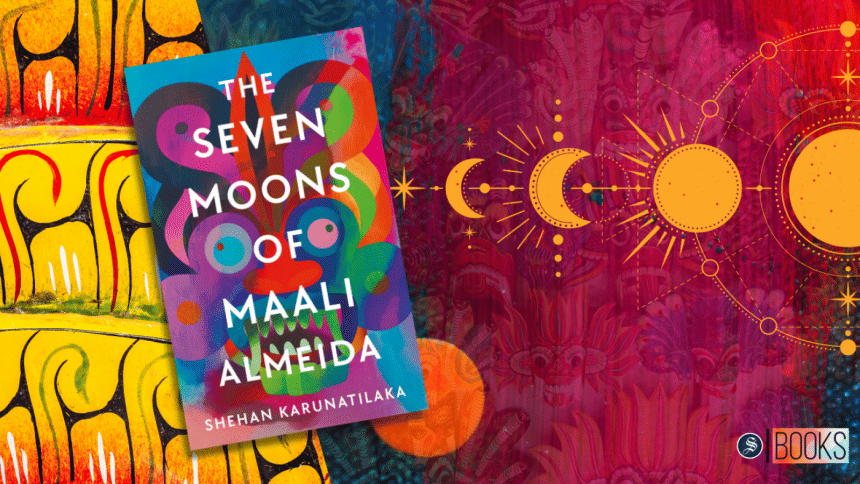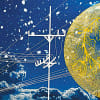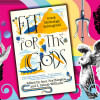All our heroes end up dead

I picked up The Seven Moons of Maali Almeida after being bombarded by its colourful cover in one too many bookstores, and I now categorise the way I feel about war in the following manner: Before Maali and After Maali. That's how much of an impact it has made on me—an impact only exacerbated two months later when I revisited the book following the July Uprising.
Shehan Karunatilaka's Booker Prize-winning-masterpiece is an audacious follow-up to his debut, Commonwealth Book Prize winner Chinaman (2010) (a joyous mess consisting of an alcoholic, washed-up reporter tracing the annals of pasts and presents to hunt down a great, but erstwhile, cricketer). Chinaman introduced us to a gifted novelist who could juggle pain with humour without taking the edge off the other. The Seven Moons of Maali Almeida cemented Karunatilaka's place in history.
For Maali Almeida, life is one long poker game where one loses twice the money gained. His almost hopeless perspective is understandable: born to a Sinhalese father and Burgher mother in a country busy grappling with its own tapestry, Almeida spends his time capturing undulating violence. His pessimism is agitated by his sardonic irony: "In all this madness, there is only one beast whose existence you doubt. And you are not thinking of God, also known as Whoever. You are thinking of that most impossible of all mythical creatures: the Honest Politician."
The tone throughout Maali is ardent sorrow punctuated by laugh-out-loud wit, asserted strongly by the narrative of our protagonist, who has woken up to find himself dead. The afterlife he is stuck in is a mirror to a reality known too well by most of us living in Bangladesh: a wearying, sometimes-dysfunctional (and often-incompetent) bureaucracy. Ghosts, victims of the violence wrought by the Sri Lankan Civil War, stand in lines stretching time, form-in-hand, scowl-in-face. Almeida hears whispers of the dead in the wind; even in death, he does not escape opportunists, be it in the form of vengeful Marxists or voodoo-wielding Gurus (but he does escape Colombo traffic, so death has its perks).
Once he is dead, he is faced with an ultimatum: move on to the Other Side, or be stuck in the In Between forever, a decision he must make in Seven Moons (a poetic way to say he has a week). The dilemma lies in the fact that there's some extremely valuable photographs he wants to expose to the world, but the only way to do so is to communicate with the two people who know him best. Enter, Maali's British-resident girlfriend Jaki, and her political-nepo-baby cousin (and Maali's illicit, on-off boyfriend) DD, neither of whom has a clue that Maali is dead.
Maali's motivations are a projection of what Karunatilaka wants to communicate about war: about the lingering trauma that remains, of what the dead would say if they could speak. This is what forms the crux of the story. He races against time to get to Jaki and DD, braving demons and his own mistakes. It's a sobering reflection of the cruelty one can leave behind, even when you're not in the middle of it all.
Almeida's roving eye sears everything in its past with its critical outlook, and the worst is reserved for himself. He tells us details of his life in abundance, no graphic detail spared. The island-wide calamity that befalls this book spares nobody ("The one good thing you can say about a bomb is that it isn't racist or sexist or concerned about class.") and the skeletons are recorded by Almeida himself.
This is why, when he says the worst is yet to come, it feels like he's telling the future: the controversial 2009 dénouement of the Lankan Civil War, the uprising that would see civilians take over the President's house. The way we faced a similar reckoning ourselves, with the ousting of our own government and even way of life. But despite the agony, despite the girlfriends related to boyfriends, despite the poker marathons and missing limbs, Almeida doesn't lose sight of what the reader does. That ruthless pragmatism needs an equally reckless hope. That courage is what drives us forward. Yes, the journey in getting there is nothing short of hell (sometimes, literally), but he says it best himself: "the kindest thing you can say about life. It's not nothing."
Sejal Rahman is a contributor. Reach her at [email protected].

 For all latest news, follow The Daily Star's Google News channel.
For all latest news, follow The Daily Star's Google News channel. 








Comments